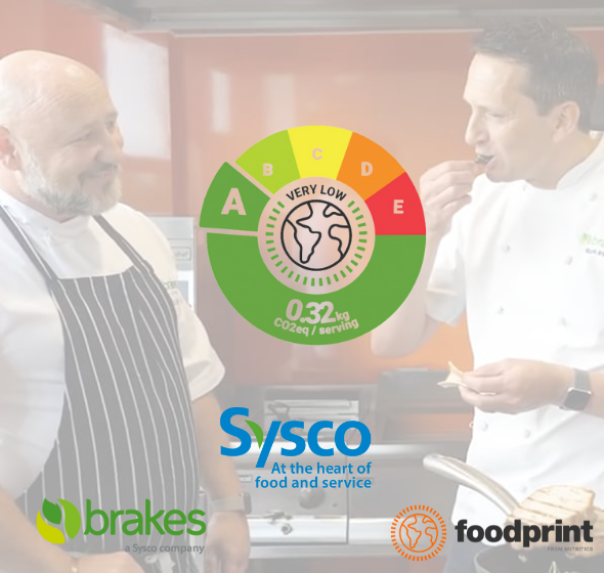Sysco GB launches Foodprint to support chefs with carbon labelling on menus

Foodprint is a fully automated environmental impact scoring system for the hospitality and food service sector that allows customers to track, manage and publish the water and carbon impact of their menus.
With food contributing almost a third of all global carbon emissions, the new tool will allow Brakes to support customers to quantify the impact of their menus by delivering product level carbon data.
The solution puts sustainability at the heart of recipe development, by bringing carbon and water data together with nutritional and allergen information. Foodprint can be used to develop more sustainable menus and empower consumers to make choices based on the environmental impact of a particular dish.
Paul Nieduszynski, chief executive at Sysco GB, said: “Over 90% of our carbon footprint is the food that we sell, so educating our team and supporting customers on the design and development of menus and the products they are sourcing is vital to us playing our part in tackling climate change.
“With thousands of customers and the industry’s largest development chef team, we are very excited about the opportunity to build on Sysco's global science-based targets and be at the forefront of transforming the food system and what ends up on the menus of tomorrow.”
Sysco GB worked with Knowledge Labs from Nutritics to create and deliver a programme to educate all its 8,000 colleagues about sustainability.
Stephen Nolan, chief executive of Nutritics, added: “Fresh from helping the organisers of COP28 deliver climate-friendly menus across the conference, this is another opportunity for us to provide food sustainability experience that helps hospitality businesses.
“We’re proud to work alongside Sysco GB, creating a path towards shared goals and becoming part of its sustainability journey. By becoming part of Brakes’ Virtual Chef concept, we’re able to support the company in its broader mission to reduce emissions and educate customers on the impact of culinary decisions on the environment, creating a greener future.”
